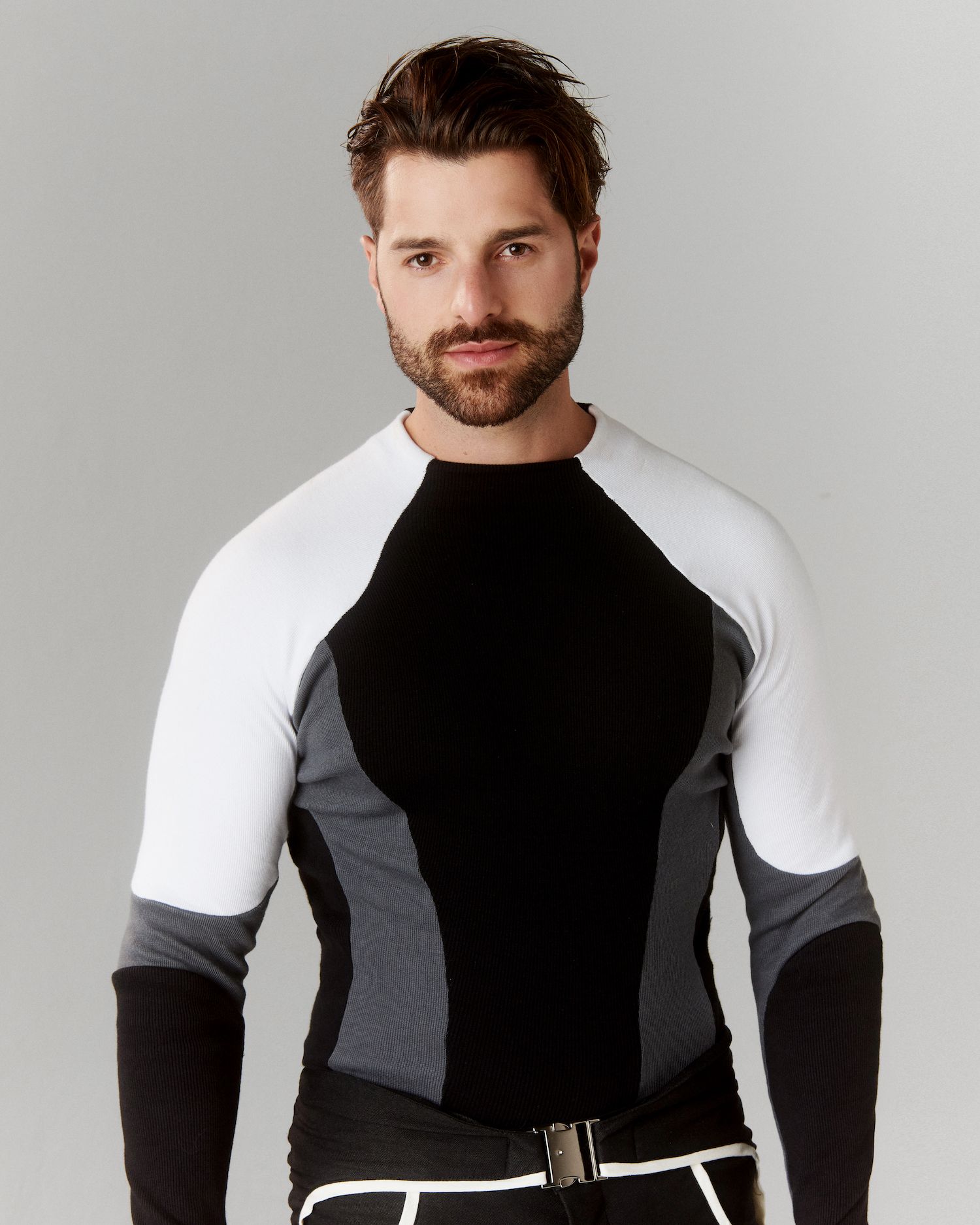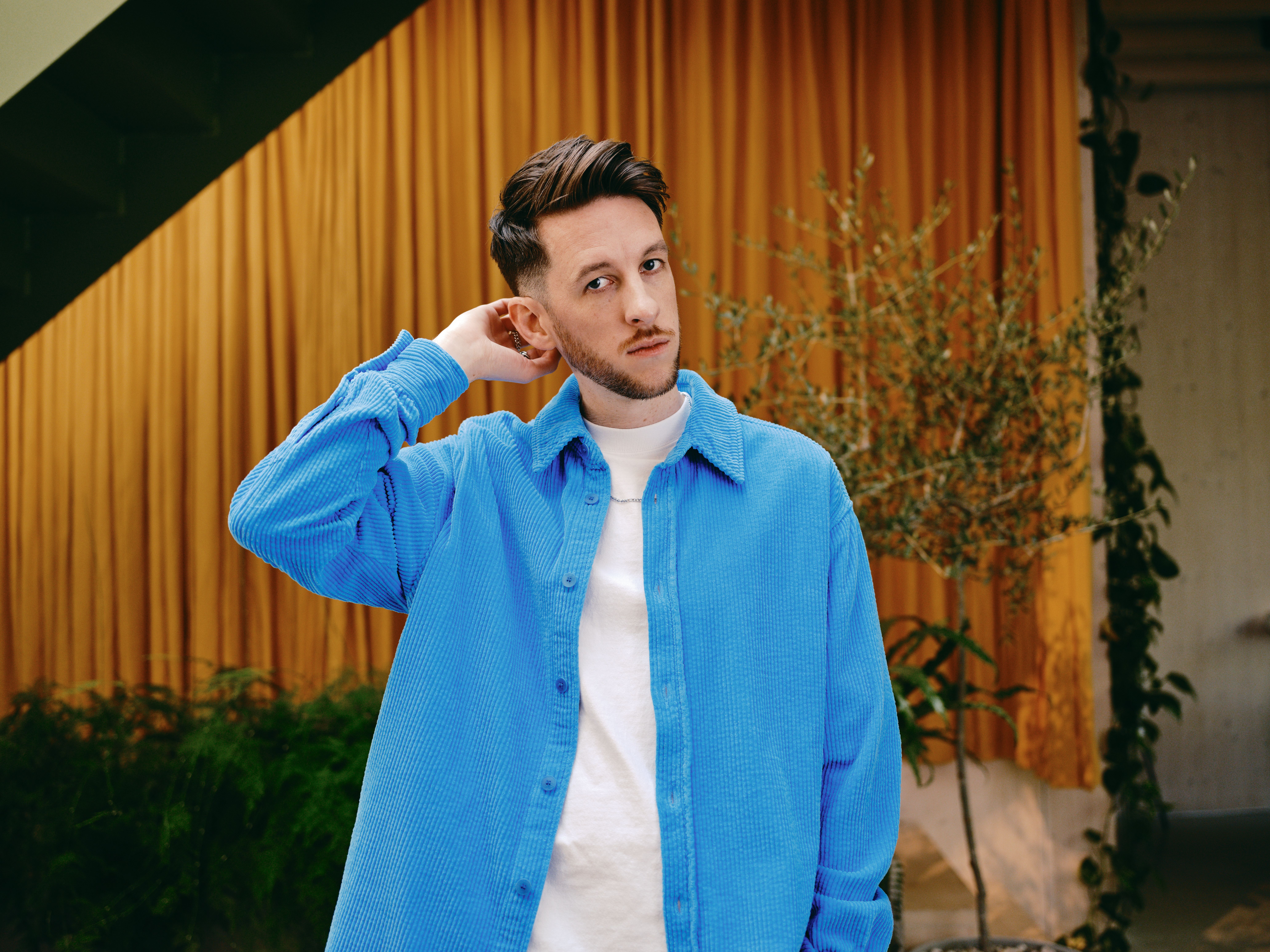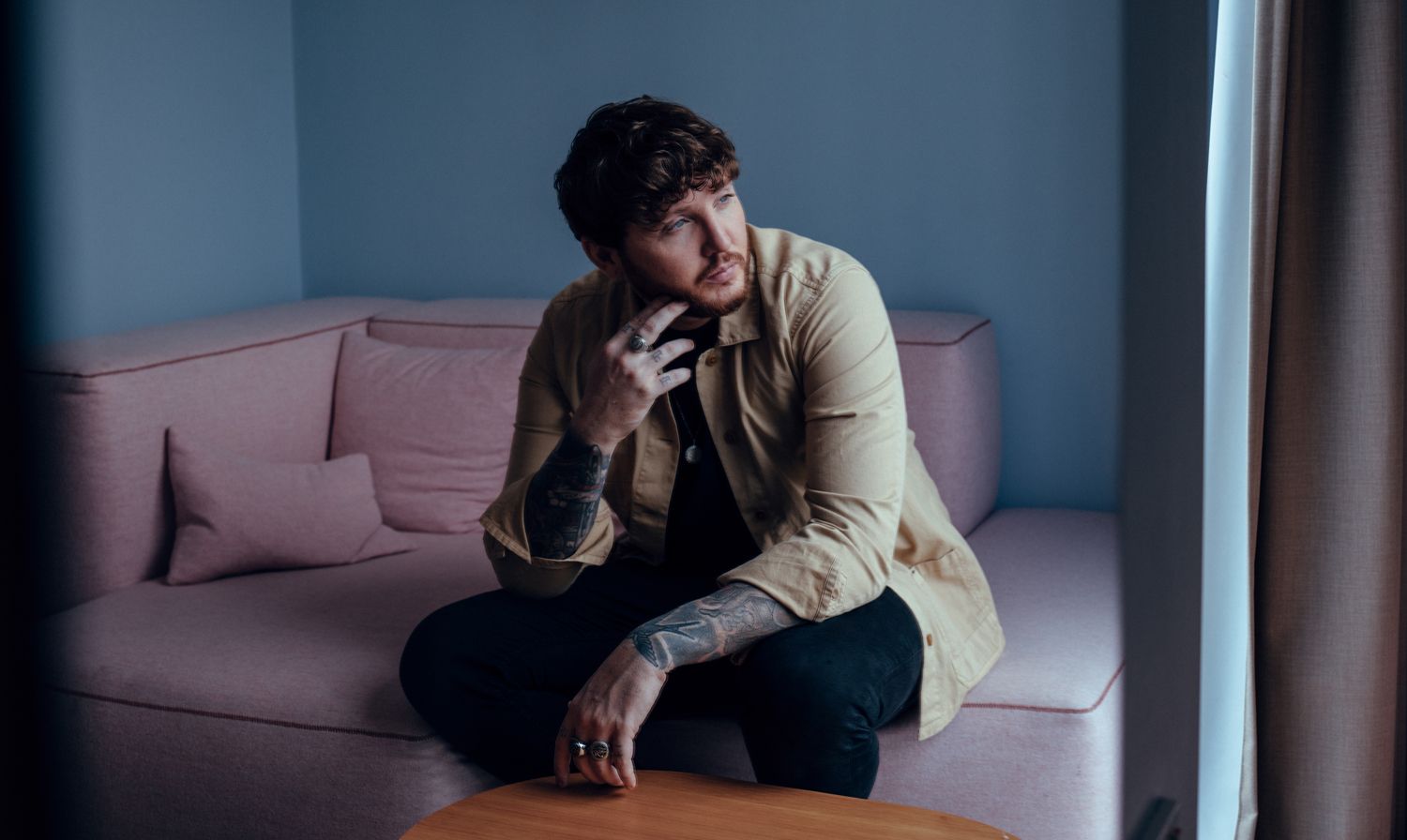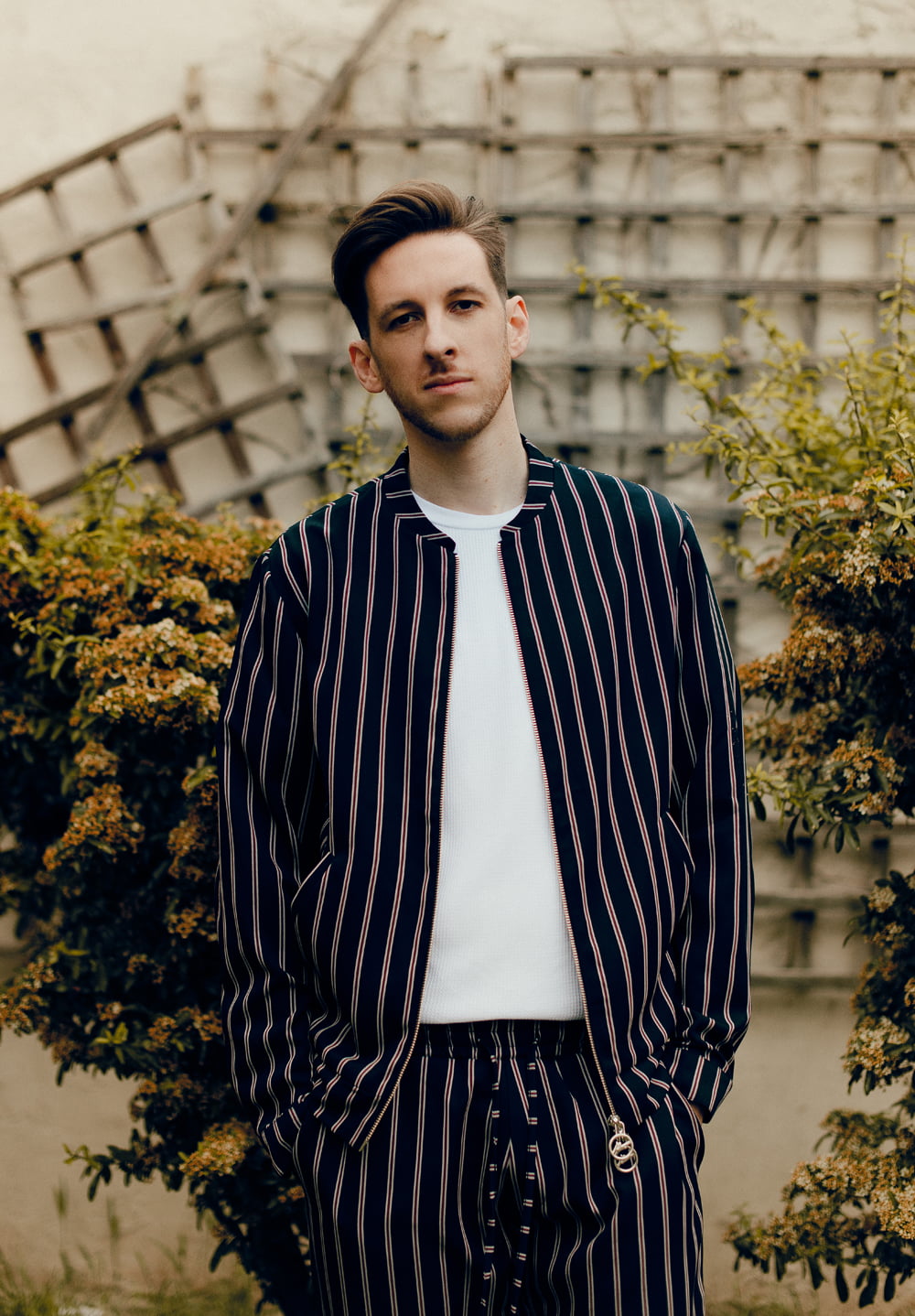
Sigala
Sigala first established a name for himself in the world of house music back in 2015 with the release of his infections single “Easy Love”. With the recent release of his collaboration with James Arthur, “Lasting Lover”, Sigala is once again proving why he’s one of the best in the business.
Sigala’s road to house music was paved with piano lessons, thoughts of becoming a composer, and a sustained effort to transform his introverted tendencies into an extroverted on-stage persona. Since his career skyrocketed in 2015, he has collaborated with popular artists like Ella Henderson, Becky Hill, Nina Nesbitt, and Kylie Minogue. With each single release came another wave of popularity and enthusiasm from the devoted electronica fan base and another opportunity to tour across the world.
Since lockdown began, Sigala has been focusing on his second album. Looking at this time as a silver lining, he’s been able to produce a slew of new songs for his fans to enjoy regardless of where they are. Focusing on the quality of the music and the emotions it evokes above all else is what truly sets Sigala apart from the pack.
1883 spoke with Sigala about the process of collaborating with James Arthur via Zoom, which venues he’s most looking forward to playing again, and which musicians and genres have most inspired his exciting career.
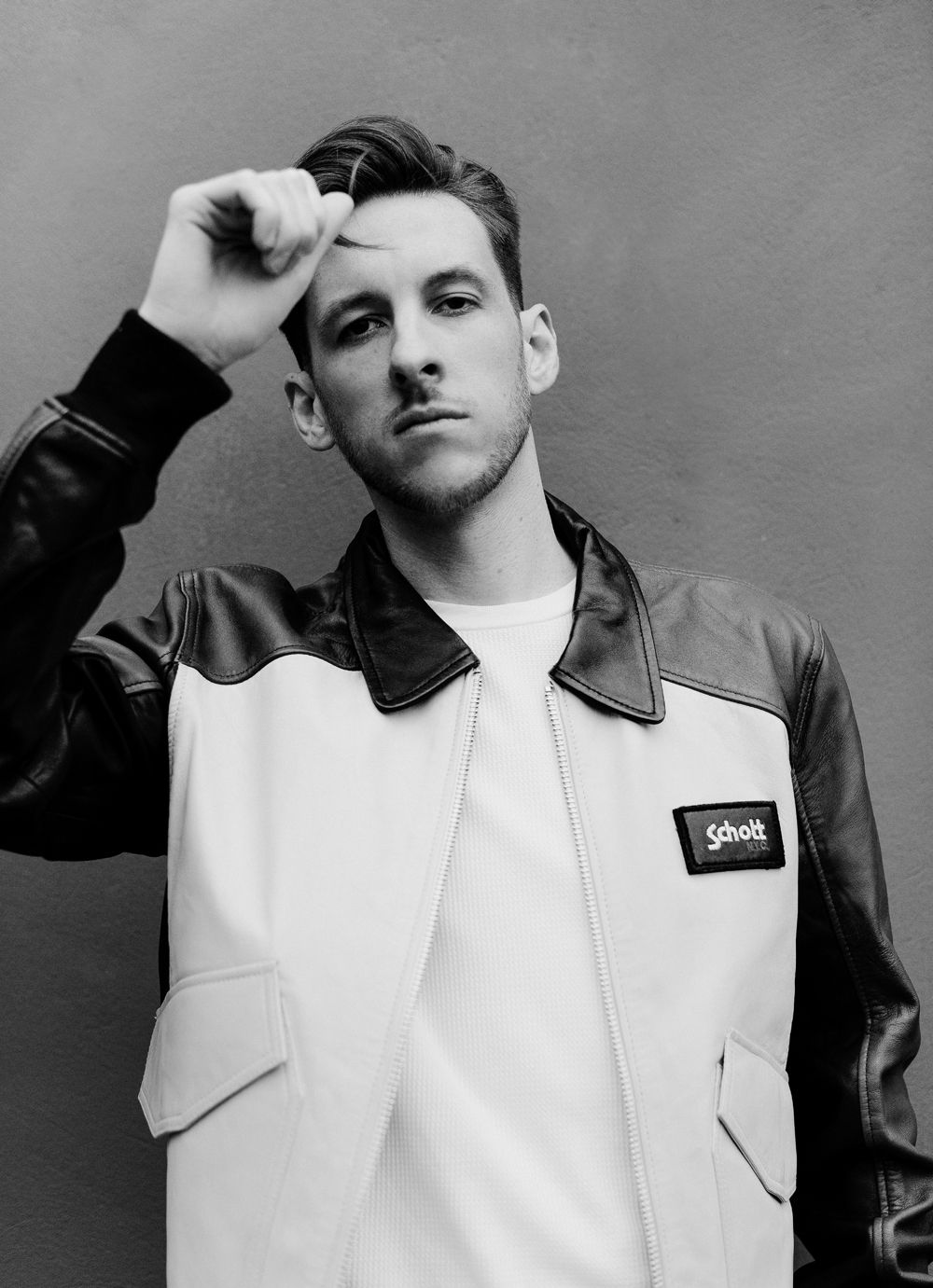
Congratulations on the release of your single “Lasting Lover” with James Arthur! You previously mentioned that the song was originally written by Lewis Capaldi, so I was wondering if you could tell us what your initial reaction was when you heard the song?
Yeah, it wasn’t something that I thought that I would necessarily do when I first heard it, because it was a ballad. It was just Lewis singing with an acoustic guitar. And I didn’t really know what I would be able to do with it and still make it sound like me. So, I sort of sat on it for a while and kept it in my iTunes and I kept going back to it, and I knew it was an incredible song and I kept listening to it. And I thought “I have to try and do something with this”. And then it was kind of like an exciting challenge to try and turn it into something that I could release as Sigala. And as soon as I started working on it, it became clear that it was going to be like…it was actually going to really work. And I think I did the version that’s pretty much what it is now quite quickly—it all came really naturally. And yeah, like I said, it was really exciting to do something…I always try and do something a little bit different with my singles and try and take inspiration from a certain era, or a certain genre, or sound or something that I can still dress up as a Sigala sort of sounding song but it has something a little different and I felt like this really did. So that’s why. That’s why I loved it so much.
Was there a specific genre that you pulled from when you were trying to mix “Lasting Lover”? What was the process like when you were transforming it from the stripped-down version that you got originally to the layered version that you ended up mixing?
Yeah, I mean, I wanted it to sound modern, but I was sort of taking sort of 80’s influences on the big like synth sounds and the drums and stuff like that. When I first started working on this there was sort of…something was going on, I kept hearing bits of 80’s in tunes and I was like, “Ah sweet, we can do that”. And so, sort of drawing on those kinds of influences, which is something really cool because I love that kind of music. So, yes, it came really naturally.
It’s a very strange era of music. I love 80’s music—the pop ballads and the rock songs and everything, it’s very, very unique.
Power ballads! [Laughs]
[Laughs]. Yeah, exactly. You can’t really get any better than like a great power ballad from the 80’s. For “Lasting Lover”, you largely collaborated with James Arthur via Zoom, given all the COVID restrictions. What were the challenges of having to navigate the collaboration through video chat?
It was surprisingly easy to be fair. I did have some reservations when I knew that we were going to be working on the song and that we weren’t necessarily going to be able to be in the same room, because it’s not ideal, but that is sometimes how a lot of music is made even before [COVID]. You know, having to go into lockdown and stuff like a lot of music is made over overseas and by email and you never actually meet the people. It’s interesting, but I still think it’s really important to, you know, get to know them and involve them, which sadly is not the case for a lot of people. A lot of artists just, you know, they say, “Oh, he can work on it”, they get the vocal through—they never even talk to the singer or the artist they’re working with and it works for some people, but I really don’t like that approach. The reason I’m in music is because I love working with musicians. I love working with talented people and being inspired by them and James [Arthur] was one of those people—somebody I wanted to work with for ages and somebody who has an incredible voice and that’s really important to me. And, yeah, we managed to make it work over lockdown just because we were constantly in touch with each other and I wanted him to be really involved in the process and he’s like just as much a perfectionist as I am, which is quite nice, because I didn’t mind telling him, “Maybe we should change this tiny little thing here that no one’s ever gonna really hear”. And he was like, “Yeah, man we should do that! Let’s do it 10 times and then pick the best one”.

That must be nice!
Yeah, because most people don’t understand or that just think I’m crazy, so we’re on the same level.
That must make it a lot easier, and it’s great that you were able to collaborate with somebody who appreciated that and was willing to be like, “Yeah, you know what we are going to make this as good as we possibly can”. That’s great. When you’re mixing and producing a new single like this, what do you do to get into a creative headspace? Do you envision what it’s going to sound like playing in clubs or people’s houses or do you just have a centering process to get your creative energy flowing?
It comes and goes. This success, being creative, is not something that you can just turn on and off. So, sometimes I have to persevere with things, and I’ve done it enough times to know that I can eventually get there, to that endpoint, even if I don’t necessarily know what that endpoint is, but I know that if I persevere and not let it get me down that I will get there, and with some [songs] something comes really quickly, and I know exactly where I’m going with it and it just happens. And then with others, it takes much longer, and I have to explore 10 different versions…completely brand-new productions on each one until I feel like it’s as good as it should be. This one [Lasting Lover] I think it was like the second version I did. It was in the first day that I put the acapella into Pro Tools. I made a version that was pretty rubbish, and then a brand-new version from scratch, and was like, “Yes, this is it”. But yeah, it’s different. It’s really different every time.
I know for myself creatively there are times where you’re just blocked and you’re trying really hard and then you’re like, I gotta just, you know, step back from this. So, when you’re approaching a new song where you’ve already been provided the lyrics and other elements like you were with “Lasting Lover”, do you use the same methods and techniques you would use for a project where you don’t have the lyrics yet? Or do you just roll with it each time?
Yeah, it’s still the same process really. For the songs that I write, that I’m involved in from day one on the top line in the lyrics and everything, I still do the same thing and like some of my songs it’s…they’ve come on a journey from like two years where they’ve started out as like a thirty-second demo that I’ve just kept going back to and then we write some verses and then we rewrite the chorus and then we rewrite the verses and then by the end of it, it’s a completely different song [Laughs]. There’s some like…there’s some magic in there from day one, that hopefully is still in there by day 500 and there are shocking numbers of different versions of some of my songs. But that’s just my process I guess I’m a little slow, but I get there in the end.
It’s obviously working! I would say that it’s productive for you and it’s successful, which is all that matters, and you’re enjoying it so that’s what counts. I heard you’re working on a new album, can you tell us about what you’ve been able to produce so far?
Ah, yeah, I mean, I’ve just a whole bunch of songs. I’m in a similar position to where I was just before I put my first album out…super excited about doing another album, it’s something that I love doing. I never thought I would be an album artist. And coming from doing a whole bunch of singles it’s really nice to focus on a bigger project and it gives me the chance to show off slightly different sounds and influences that I wouldn’t be able to in a single that’s designed just for radio. So it’s really exciting doing that and I feel like I have loads of creative freedom and opportunities to do, like…the first album I did, I had something stupid like 24 collaborators on it, like-named collaborators, I can’t remember the exact number but it wasn’t just like one feature per track. Yeah, like I love doing that and that’s what I always wanted to do for that album. Like, it’s not even about me. I’m just the catalyst to bring everyone together and that’s what I want the next one to be as well. It’s just about bringing great, great talented singers and musicians together and hopefully having something cool at the end.
Was there a specific moment where you realized you wanted to or could get into making an album versus just producing singles?
Um, I think it was just a point when I realized I had so much music that was never going to see the light of day and that was kind of saddening, and like I can only release so many singles…two or three singles in a year. So, it’s an opportunity to get out all these other songs that people are never going to hear otherwise. And, not necessarily, you know, better or worse than any of the singles, they’re just different. And, yeah, it just seems like a horrible waste to have all those songs on my hard drive and not do anything with them. So, it’s exciting to be able to get out that bulk of music in one go.
And I’m sure your fans appreciate that as well because it’s nice to be like, “I’m not gonna just harbor this all to myself, I’m gonna give people something that they can actively listen to.”
Yeah, I feel like if I could put 10-15 singles out a year I would do it. There’s just not enough days.
You got into music at a young age. I read that you had started playing piano when you were younger, but I was wondering if you could take us through your musical journey from that point to the manifestation of your career now. What was it about becoming a DJ that made you realize this was the right musical path for you?
So, how far do you want me to go back? [Laughs]. I’ll do the quick version! I started playing piano when I was about eight years old. Did my grades and stuff like that and it took me a while to sort of like…my parents sort of made me…My parents made me learn the piano to keep me out of trouble, basically. Keep me in the house and keep my mind focused on something. And then I started to really enjoy it and got into bands and things like that. And like had a dream of being in a rock band and playing keyboards in a rock band like Rick Wakeman or something like that. And that dream kind of died as the band sort of died. And it became quite apparent that I wasn’t going to make a living that way so I packed my bags and moved out of the countryside and came to London to study music at university because that was my ticket to London really. I couldn’t afford…I just had like a job in a secondhand electronics store for three years, I couldn’t afford to move to London. So, university enabled me to do that. And I met some cool people and realized that that’s where I needed to be. I got into songwriting and doing like ghost production for artists and things like that, started to build sort of quite a good network of songwriters and stuff. And then I got a bit sick of that because I wasn’t really…I still felt like I was so close to the dream but I was just writing songs that like someone would send through a brief of, “Okay, we want a song for this artist. Sounds a bit like Adele”, and you’re just sort of making someone else’s song I guess like every day and it doesn’t feel like you have the full creativity, so I was doing that kind of stuff. And it was a great way of honing my skills as a producer and just writing and working and trying to make myself better.
And one weekend I just thought I would write something for myself and I had no intention of really even sending it to anyone. A friend of mine had given me a folder of all these acapellas of like old soul records and Motown stuff and I did the Jackson Five remix which was my first single, “Easy Love” and I got a record deal off the back of that. And it just came out of nowhere really, I hadn’t expected to do anything with that song. It was just kind of like an opportunity to make something for myself. And it turned out that translated a lot better than the stuff I was doing that I wasn’t making for myself, that I was making for someone else. So, I tried to sort of stick to that, and yeah, then it all sort of kicked off from there. I’d never done a gig as a DJ before that point. I’ve done gigs as a keyboard player you know, in shadows at the back of the stage. Suddenly, I have to learn to be the frontman and perform, I guess, and like technically DJ. So, that was it. It was a pretty mad first year of when I went to put my first song out to having to DJ, because most of the time as a DJ you work your way up and you build your fan base and you get to bigger shows and stuff like that, whereas I was… my music was so successful like from the start that I had to catch up, and suddenly doing shows to fans and I had no idea what it was going to be like.
I’m sure it’s daunting to jump right into that and to have to be the central focus as the frontman that everybody’s paying attention to. That must have been interesting to learn off the cuff.
Yeah, it was. It was really interesting. It’s something I’ve never done before and I’m very introverted anyway so I’ll happily sit in the corner and just observe and, you know, I’m not really a big character in the room. So, suddenly then having to jump on stage and be that guy was very different but now I’m used to it. I feel like I have to flick the switch and become Sigala when I go on the stage, and I can jump around and it feels…I feel, you know, home doing that now. And I get such a kick out of it and I love to see people singing along to the lyrics. I never thought that I was gonna enjoy it so much. And I’m missing it now that it’s been taken away.
That must be incredibly odd to feel like you’re finally in the groove of all of it and then that live aspect is taken away from your routine and existence at this point.
Yeah, [lockdown], it was right in the middle of my world tour which was like the biggest tour that I’ve ever sort of planned. We just finished all the UK shows and I was about to head to Europe and Australia, America, and everywhere in between. And that was when it was cut short. Yeah it was gutting for myself and the team, and everyone had put so much effort into, you know, producing the show and organizing everything. And also, for the fans as well, that were looking forward to it. Yeah, it was…it was not an easy thing to cancel. So, I’m really looking forward to going back to it. But the silver lining is that this meant that I could spend a lot more time in the studio since then, which has been really productive. I feel like in the last six years I’ve been on the road constantly. I’ve never had a chance to settle into making music and it’s all…it’s always very like in a rush to get back, and then I’m in the studio for a day or two days, and then I’m back on the road and it’s all very…it’s very difficult to really be focused when there’s so much going on. So, the silver lining is that it’s meant I can be sort of focused on music and it’s been really fun to be able to get back into that.
It’s always good to look at it as positively as you can. And I’m sure you probably have all kinds of ideas now for when you get back on the road like how to incorporate what you were going to do originally and now with songs from the new album, that must be fun to kind of like dream about and plan for.
Yeah, I haven’t touched my DJ equipment since lockdown started though so I feel like I might have to relearn everything I might have forgotten and start again but that’s the kind of fun. It’s going to be like going out for the first time again and now I’ve done that and I know that it’s, you know, It’s alright.
“I remember this.”
I made it through.
When you are able to travel and perform around the world again, is there a favorite location or gig that you look forward to the most?
I love Las Vegas. I feel so honored to be able to go there and perform amongst some of the biggest DJs in the world. It’s like a playground for DJs and for people who love dance music, so I feel really honored that I’m able to go there and do that. And the same applies to places like Ibiza, and festivals as well, I’m really missing festivals. Yeah, but there are so many beautiful places in the world. That’s probably one of the things that I miss the most is the actual traveling. Not necessarily the standing in queues at airports but the touching down in a foreign land for the first time, going to the venue, seeing all these beautiful people, and being able to, you know, put on a party for them. That’s an incredible thing to be able to do, so I’m missing the traveling as well as.
Hopefully, things go back to somewhat normal or a new normal where those things are able to happen again because when you build your career around something like that—the camaraderie and that atmosphere, it’s got to be strange even when you’re working on the new album to be like, “I want this to be experienced but when will it be?” That’s gotta be kind of interesting.
Yeah, I mean I’ve never like specifically written music for live performances, it’s always been…especially the album…I feel like my album’s designed more for people to listen to, you know, in their own environment or, you know, in their day to day lives, that’s the idea anyway. So, it hasn’t necessarily changed the way I’m making music, but it might have for some other people whose music is designed solely for a live show.
Who are some of your biggest musical influences, DJs, or otherwise?
Music-wise like I grew up listening to Queen and Prince, Stevie Wonder, stuff like that. Yeah, disco, like Chic and Nile Rogers, that’s kind of music that I loved when I was growing up, which I feel like has massively influenced me. Freddie Mercury is always like, just God to me in terms of writing, and crafting songs, really. So, he’s somebody I look up to in that regard. There are definitely some influences of him that you probably would never be able to tell when listening to my songs. That’s the kind of stuff that I used to listen to, and I feel like has molded me as a music lover and a musician as well. Especially like the funky and disco influences. And then, growing up I was probably influenced…I was influenced by a lot of drum and bass because that was the thing that was big in the UK when I was a teenager. Pendulum and Sub Focus and Prodigy, and stuff like that was what I was listening to. That’s what got me into dance music was like drum and bass was the stepping stone to then getting into things like Swedish House Mafia. And when David Guetta first started having commercial success. And that was sort of where, where my love for house and dance music came from.
If you could mix and produce a soundtrack for any movie you’ve seen recently, what movie would you choose and why?
Lion King.
Amazing. The original one?
Yeah, the cartoon one. The proper one. [Laughs]. I feel like the Lion King movie has inspired my music through some subconscious, very interesting, way. I probably watched it about 1000 times when I was a kid. And, yeah, there’s something about those songs that I absolutely love. And I used to like, consider a career as a film composer or like music for screen when I was in university. That was kind of like one of the directions I could have gone. And I used to download films and all the audio and then just write my own music underneath and stuff like that. I feel like that’s, that’s the retirement scheme.
You would do this while you’re young and then transition into composing after the fact.
Yeah!
I think that’s a good career path, you know, started with the Lion King and then, who knows, getting Oscars for compositions.
[Laughs] Exactly.
‘Lasting Lover (Tiësto Remix)’ by Sigala with James Arthur is out now
Interview by Sam Cohen



